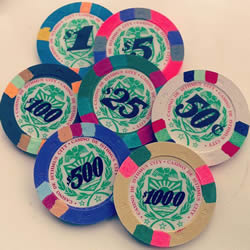In recent years accessibility to US-facing online poker rooms has been at best difficult and at worst near impossible for American players and would-be players of the game. Since the UIGEA, a law that forbade the processing of certain financial transactions related to gambling but did not outlaw the game of online poker itself, was passed back in 2006, a majority of the online poker rooms left the market and no longer offered real-money online poker to American residents.
As most fans of the game are well aware, the situation was worsened two years ago on April 15, 2011, a day that has come to be known as Black Friday. On that date, a US Federal Court in New York shuttered PokerStars and Full Tilt Poker, effectively ending the days when US-based players could count on being able to access big name poker websites.
And so it comes as little surprise that fewer and fewer players from the United States are breaking onto the professional poker scene from the online world. To that end, poker rooms located in land-based casinos, which proliferated around the nation when the game was at the height of its popularity, and its boom time, back in the mid-2000’s, have been closing up shop at a steady clip.
In small riverboat casinos across the South as well as in major casinos sited in gambling destinations like Las Vegas and Atlantic City, poker rooms are going the way of the pay telephone. Las Vegas alone has seen the closing of eight of its poker rooms in the last two years, as reported by the Washington Post.
According to University of Nevada at Las Vegas professor of public administration and author of the book Gambling in America, William Thompson, “I just think the allure of poker is lessening. That’s one reason the smaller casinos would just say, ‘Hey it’s not worth all the time to set everything up. A slot machine would do a lot better.’”
Poker rooms have never been a terribly profitable venture for most casinos, who are better off using the valuable real estate for games with a higher potential for profit, like slots and certain table games. In fact, poker revenue in Las Vegas has been declining since 2007 as has participation in the World Series of Poker, the game’s most visible annual tournament.
The fact that the number of players sitting down at the poker table has been slipping since just a year after the UIGEA’s passage is timing that isn’t lost on many.
“Poker had gone through a dramatic popularity phase. It grew really quickly. And we jumped on board,” said Fred Harmon, who serves as chief marketing officer for the Tropicana in Las Vegas.
While there are few who dispute that a crackdown on Internet poker is what led to the overall deterioration of the popularity of the game, there are just as many who believe the game is poised for a resurgence. Three states have now passed laws to regulate some form of online gambling – Delaware, Nevada, and just this past week, New Jersey.
As a younger crop of potential players suddenly finds access to real-money online poker rooms, we may begin seeing a reversal of fortunes for the game. Whether or not the boom will mirror that of the previous decade remains to be seen, but we’d be willing to wager that if poker becomes as huge as it once was, there will be plenty of casinos happy to re-install a few tables.

